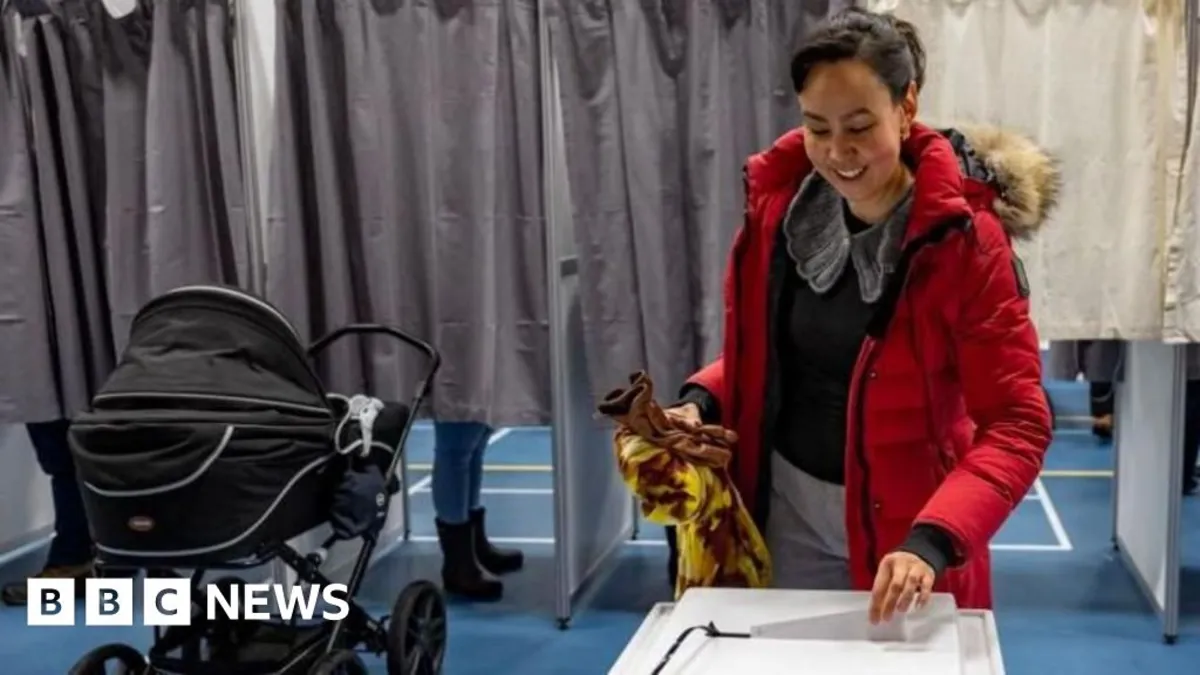
In a significant political shift, Greenland's centre-right opposition has emerged victorious in the recent general election, according to near-complete results. This election was notably influenced by US President Donald Trump's controversial pledge to acquire Denmark's autonomous territory, sparking widespread discussion and debate.
With over 90% of the ballots counted from Tuesday's election, the Demokraatit party is leading with nearly 30% of the vote. This party advocates for a gradual approach to independence from Denmark. Following closely is the Naleraq party, which seeks to initiate immediate divorce proceedings from Copenhagen while fostering closer ties with the United States, currently polling at around 25%.
In contrast, the ruling party led by Prime Minister Mute B Egede, the Inuit Ataqatigiit (IA), is in third place with over 21% of the votes. The election saw approximately 44,000 of Greenland's 57,000 residents eligible to vote for 31 Members of Parliament (MPs) and local government positions. A total of six parties were on the ballot, with the Siumut party, Egede's partner in the current left-wing coalition, trailing in fourth place with nearly 15% of the votes. The remaining two parties, Atassut and Qulleq, are significantly behind, polling at 7% and just over 1%, respectively.
The voting process took place at 72 polling stations distributed across the expansive island of Greenland. This election not only reflects the political landscape of the territory but also highlights the importance of local governance and the desire for autonomy among Greenlanders.
Greenland's strategic location and its vast, untapped mineral resources have drawn the attention of President Trump. He initially proposed the idea of purchasing the island during his first term in 2019, and since resuming office in January, he has reiterated his intention to acquire the territory. During a recent address to the US Congress, he stated, "We need Greenland for national security. One way or the other, we're gonna get it."
However, both Greenlandic and Danish leaders have firmly rejected Trump's demands. Prime Minister Egede has consistently asserted that Greenland is not for sale and deserves to be treated with respect, emphasizing the territory's autonomy and unique cultural identity.
This election is crucial not only for Greenland's future but also for international relations, particularly between the United States and Denmark. The outcome reflects the changing political dynamics in Greenland and raises questions about its path toward independence and the implications of foreign interests in the region.
As the political landscape evolves, it will be essential to monitor how the newly elected opposition parties will navigate these complex issues and what impact they will have on Greenland's quest for self-determination.